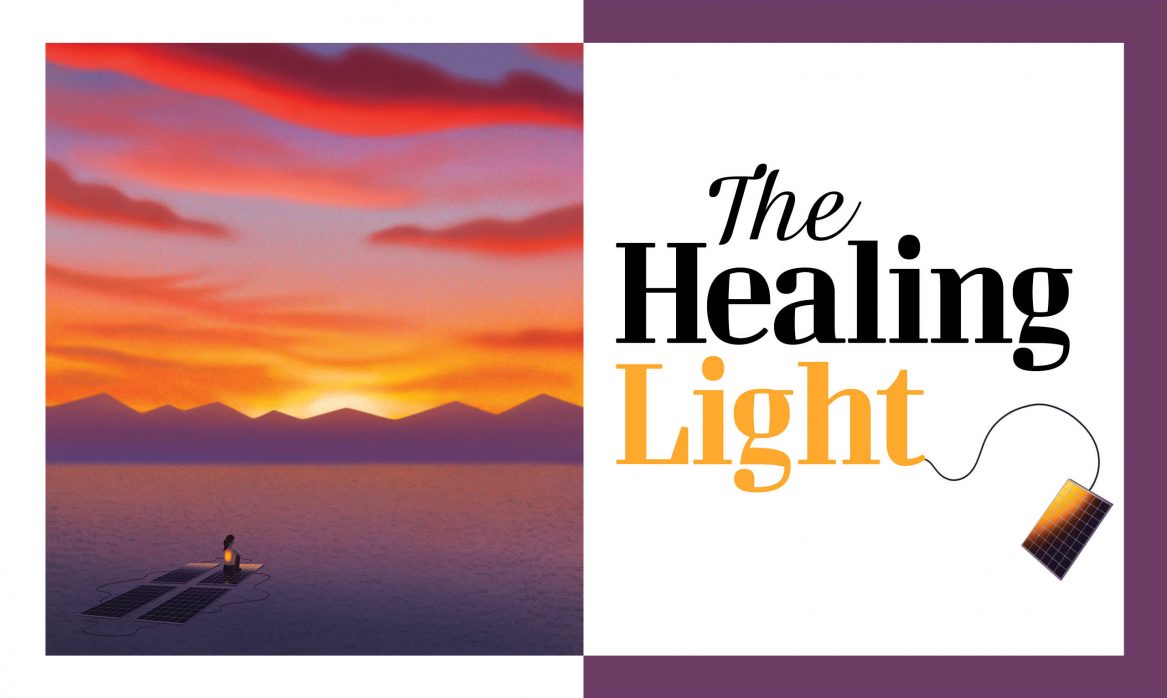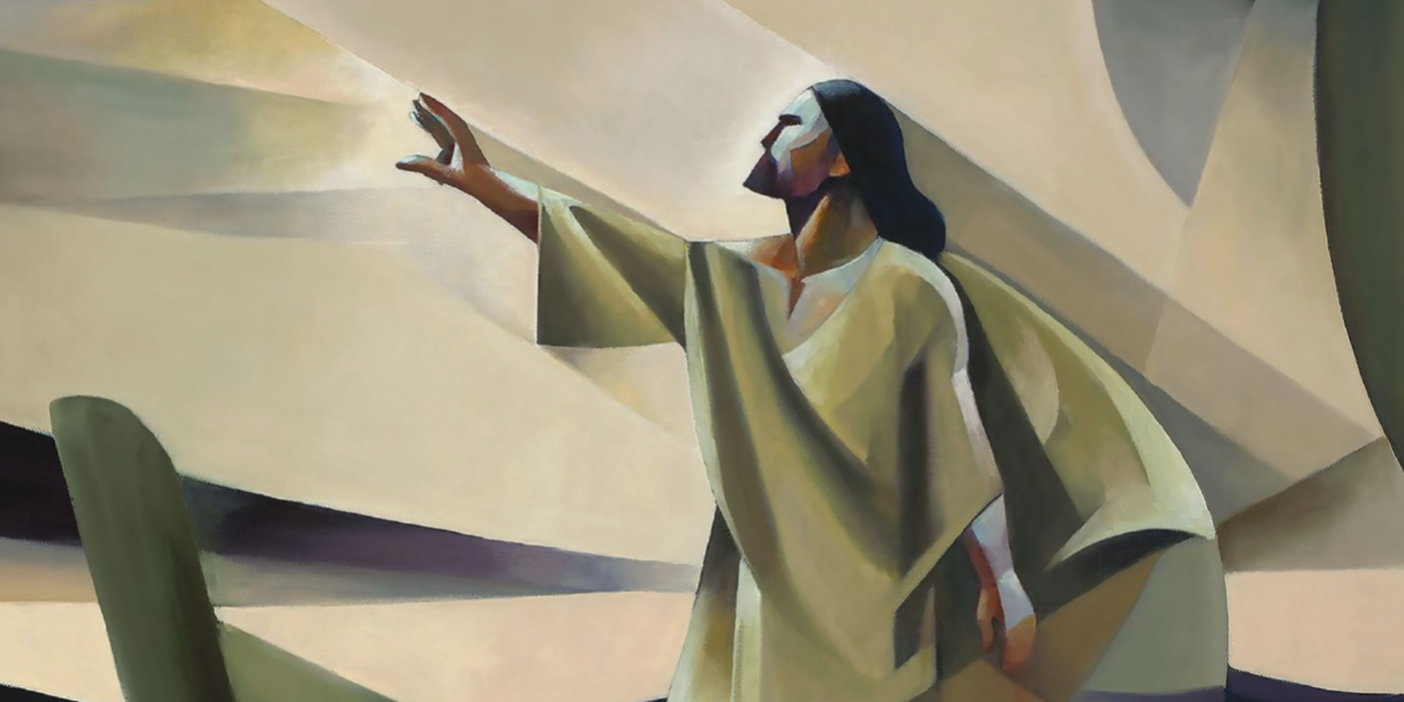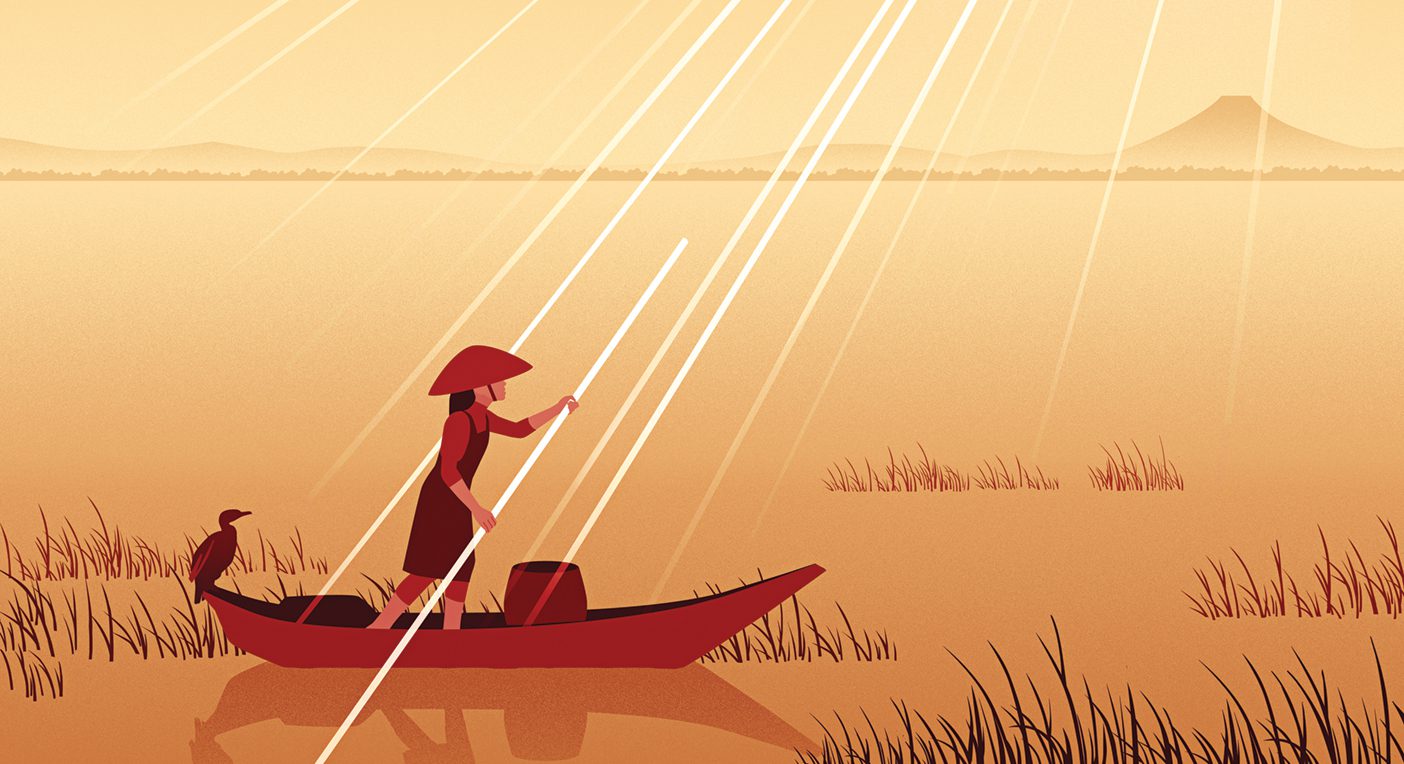Lessons on Endurance
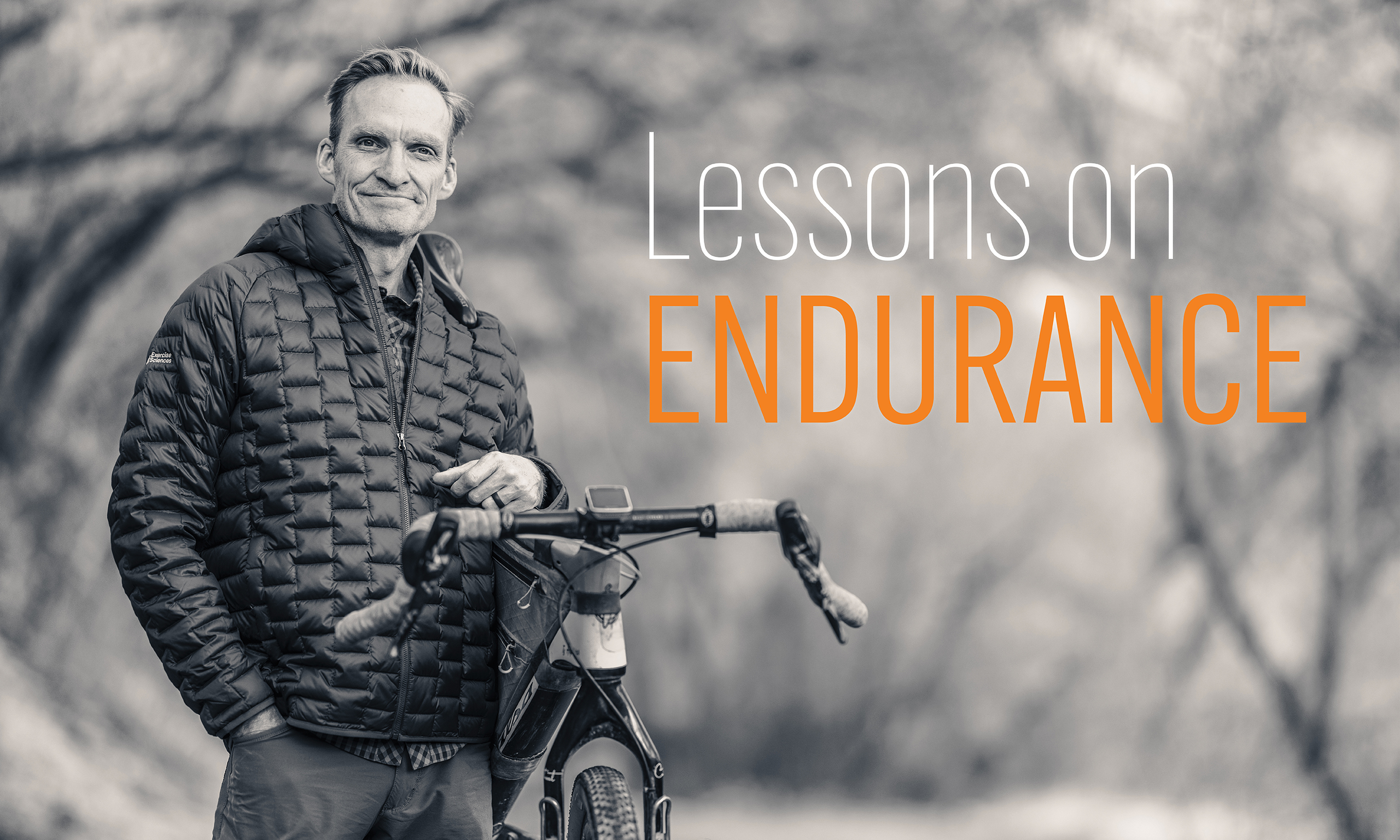
There will be rough terrain, blisters, and crashes, but there will also be meadows of flowers.
By J. Ty Hopkins (BS ’96) in the Winter 2025 issue
Like many of you, I am fascinated with stories and accounts of survival and endurance. The question I find myself asking with each account is “How did they do it? Where did they find the strength, endurance, resilience, and perseverance?”
I was fascinated by the idea of endurance at a young age. I loved any kind of race, and the image of breaking the tape at the finish line in the excitement of victory was one that I would replay in my mind over and over again.
I have a distinct memory: I’m a young high schooler, it’s early in the morning, and I’m sitting in my seminary class in Kerrville, Texas. That year we were studying the Book of Mormon, and on this particular morning we were studying 2 Nephi 31. While I have no memory of learning anything about the rest of the chapter, I remember one verse in particular.
Wherefore, ye must press forward with a steadfastness in Christ, having a perfect brightness of hope, and a love of God and of all men. Wherefore, if ye shall press forward, feasting upon the word of Christ, and endure to the end, behold, thus saith the Father: Ye shall have eternal life. (2 Ne. 31:20)
Sitting in that seminary class, my mind went straight to the image of breaking the tape at the finish line, exhausted but in triumph. At that moment, I interpreted Nephi’s verse in this way:
If we work really hard—press forward, grind it out—endure, and get to the finish line, then we get a big prize—eternal life.
I want to talk to you about the lessons I have learned on endurance—a little about what I have learned as an exercise scientist but mostly what I have learned on my journey to find joy in trying to follow Jesus Christ.
Endurance Requires Work
In 2010 I was sitting in a reception area waiting for an appointment. I picked up a magazine called Outside and started flipping through the pages until an article caught my eye. The title was “The World’s Toughest Bike Race Is Not in France.”1
I’m a cyclist, and I understood very well that the author was referring to the most celebrated cycling event in the world—the Tour de France. As I started reading, I felt myself getting sucked into what is really the world’s toughest bike race, the Tour Divide.
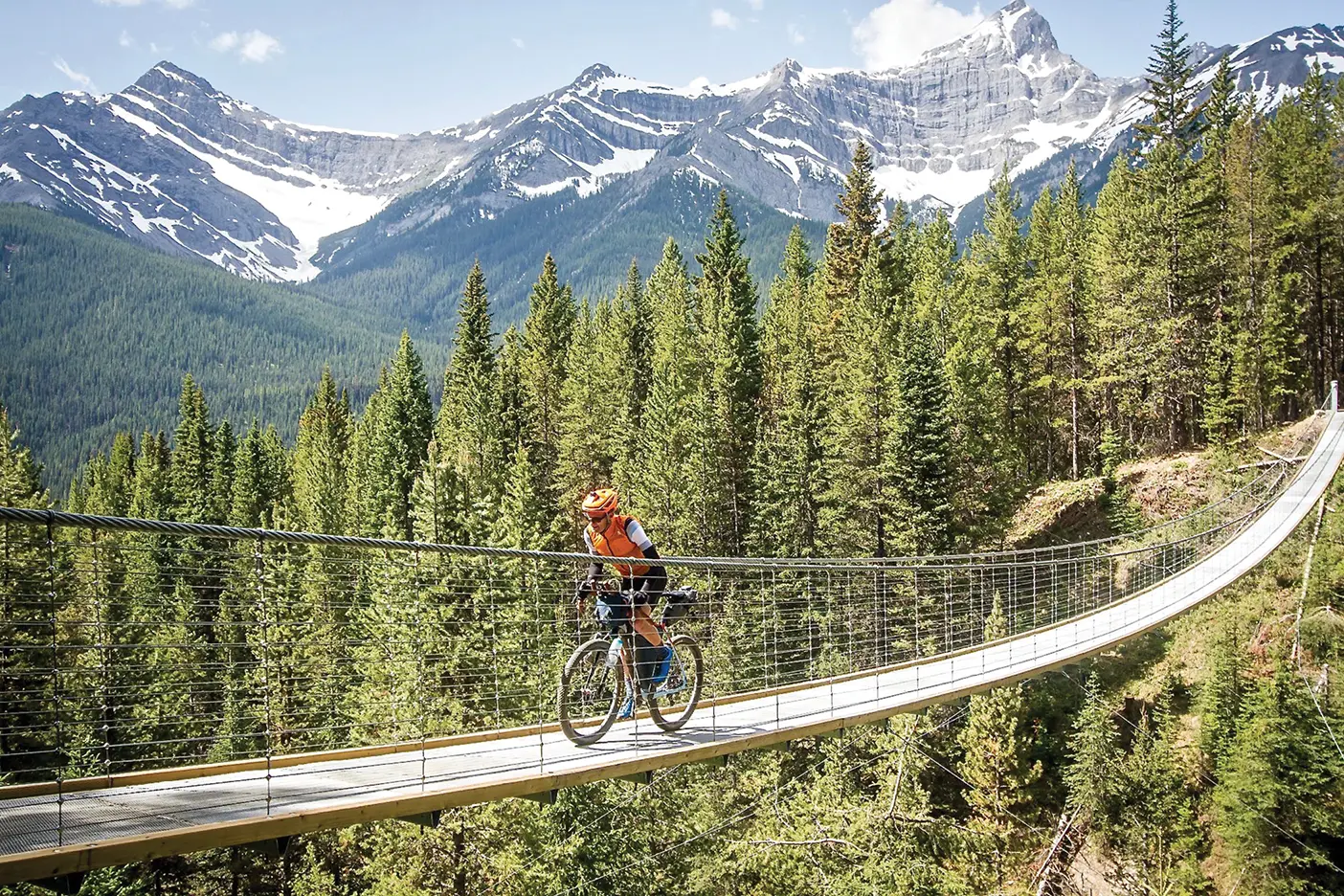
The Tour Divide is a small, self-supported mountain bike race that follows the Continental Divide from Banff, Canada, to the Mexico border. Not only is it 2,700 miles of lost and forgotten backcountry dirt roads with almost 200,000 feet of climbing, but it is completely self-supported. All riders must carry their own gear and be prepared for any condition: rain, snow, searing heat, brutal winds, unrideable passes, and even giant bears. There are no aid stations, no preplanned drops, no people to fix the bike or save you from the elements—just a few small mountain towns and their diners and gas stations.
I loved the idea of being completely on my own and enduring the distance, the elements, the breakdowns, and any of the challenges that would arise. I read every word of that article and instantly started wondering if I could pull this off one day.
Serendipitously, only weeks later I was talking with another mountain biker who also had dreams of challenging the Tour Divide. There aren’t many of us. Adam and I became instant friends and training partners. Our paths would one day lead us to the Tour Divide.
Lesson number one on endurance: endurance requires work—hard work. There is no substitution. Endurance is not the process of passively waiting something out.
In my simple interpretation of 2 Ne. 31:20 as a young high schooler, I was right about one thing. Lesson number one on endurance: endurance requires work—hard work. There is no substitution. Endurance is not the process of passively waiting something out.
Elder Uchtdorf taught it this way:
When our wagon gets stuck in the mud, God is much more likely to assist the man who gets out to push than the man who merely raises his voice in prayer—no matter how eloquent the oration.2
In the body, effort and work are the stimuli that trigger a series of events that lead to positive adaptations in strength, endurance, and power. That same effort can result in enhanced cognition, mood, and memory.
Work pays off in the short term by accomplishing the task in front of us. But it pays off even more in the long term by improving physical, mental, emotional, and spiritual outcomes and enhancing confidence for future work.
When President Gordon B. Hinckley was struggling as a missionary, he credited his father with improving his experience by simply telling him to “get to work.”3 Work is a honing tool. It refines us, and it is an absolutely unavoidable ingredient of endurance. Nephi taught us this when he started 2 Ne. 31:20 with “press forward” and reemphasized the phrase again midway through the verse. To me, he was saying, “Get to work!”
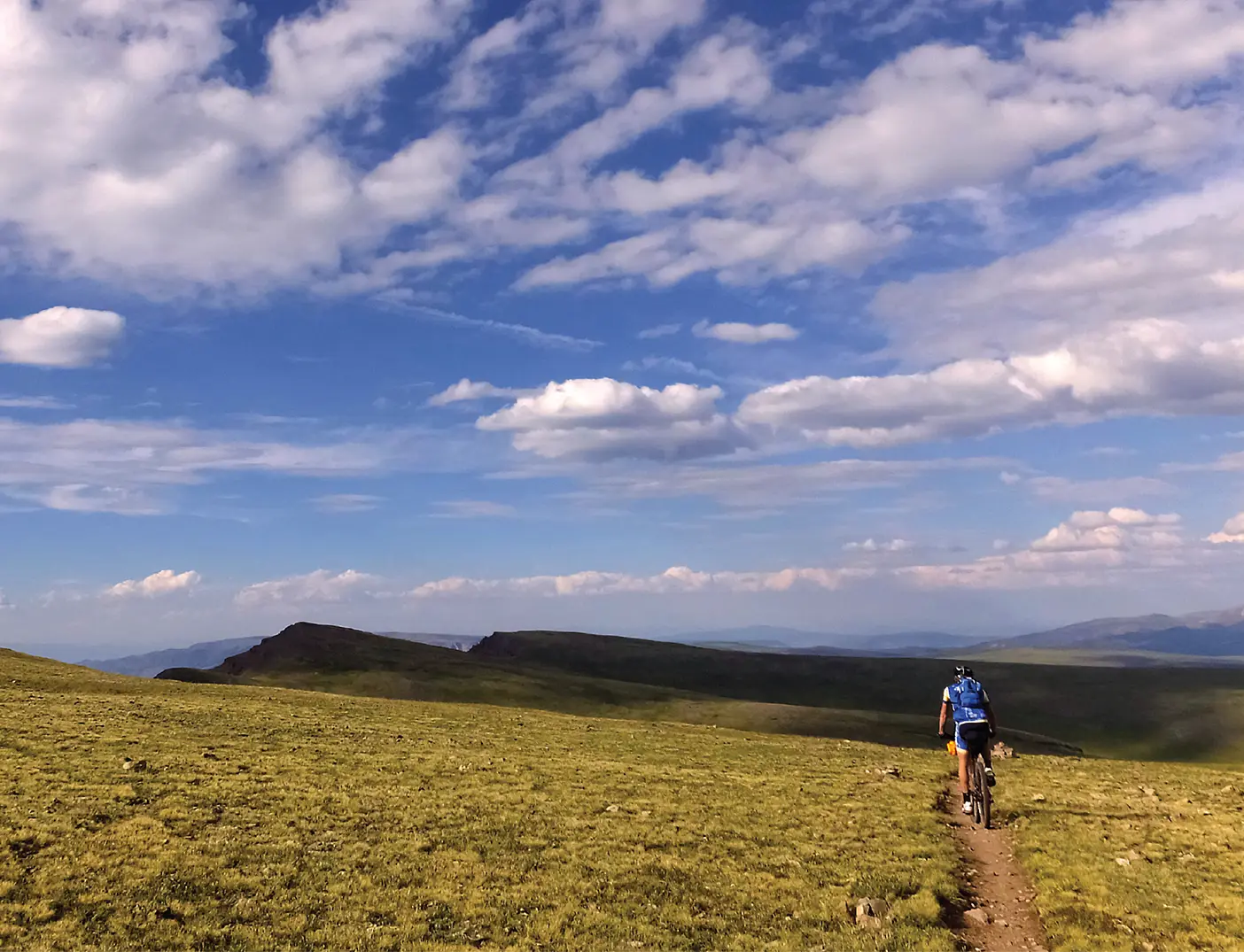
In my quest to conquer the Tour Divide, and with my fairly simple understanding of endurance, work was my focus. It was the principle on which I hung my bike helmet.
I started riding my bike everywhere, including to work from our home in American Fork and back. When that became easy, I woke up earlier and rode over the mountains to and from work. I raced every race I could find time for, including 12- and 24-hour events. I rode my bike in winter snow and often at night in the mountains. Adam and I would load our bikes with gear and ride for multiple days across the deserts and mountains of the West. I noticed my fitness and my ability to tolerate discomfort drastically improved. The work was paying off.
Endurance Is Learning
After a few years of this hard work, I was ready to test myself. In 2013 both Adam and I decided to race our first ultra-endurance event: the Colorado Trail Race. The Colorado Trail extends from Durango to Denver. It is 570 miles of rough, remote, and relentless trail, traversing miles and miles of high mountain meadows and ridges. I studied the route to find where I could restock food and water, and I created goals for each day, with the ultimate goal of crossing the finish line in five days.
I was particularly worried about getting to the small mountain town of Silverton on day one so that I could resupply before the store closed at 7 p.m. There was no other resupply for at least two days following Silverton—it was an essential stop. If I got to the store after it closed, I would be forced to spend the night, which would place me on exposed trails the following afternoon when thunderstorms were expected to roll in.
In my mind, the race hinged on my ability to get to the store in Silverton and resupply on day one so I would not be killed by lightning the next day. The race began at 4 a.m. I was sure there would be no issues getting to Silverton by 7 p.m. that night.
I was so wrong.
The trail was much more difficult than I anticipated. It climbed thousands of feet in the first 30 miles. The altitude took a toll on me, along with my poor management of food and water. My loaded bike weighed more than I was used to. I hiked my bike for hours at a time in unrideable conditions. This created huge blisters to go along with my tired legs, aching back, and pounding head.
To make matters worse, I was developing a pretty poor attitude. I was in bad shape, both physically and mentally, and perhaps most important, I was starting to doubt that I could get to Silverton before 7 p.m.
In fact, 7 p.m. came and went. Then 9 p.m. came and went. Darkness fell, and 11 p.m. came and went.
Somewhere around this time, riding along with my underpowered headlamp, I caught my front wheel between two rocks in a small stream and crashed, hitting my head in the process. My glasses were broken, my face was bleeding, and I found myself sitting on the wet ground, defeated.
Battered and beaten, I rolled out my sleeping bag and bivy sack on the cold, uneven ground and crawled in. I was done. I decided to quit. With tears in my eyes, I eventually drifted off to sleep.
A few hours later I sat up in my sleeping bag with the rising sun starting to illuminate the eastern horizon, creating an incredible backlit view of the peaks. The light also opened up the vista where I’d been sleeping. Since I had arrived after dark, I was seeing for the first time that I was on the edge of a vast mountain meadow that was filled with flowers and covered with morning dew.
There will be rough terrain, blisters, and crashes, but there will also be a meadow of flowers. Will we see it? We must pay attention to and appreciate the flowers, and we must learn from the rough trail.
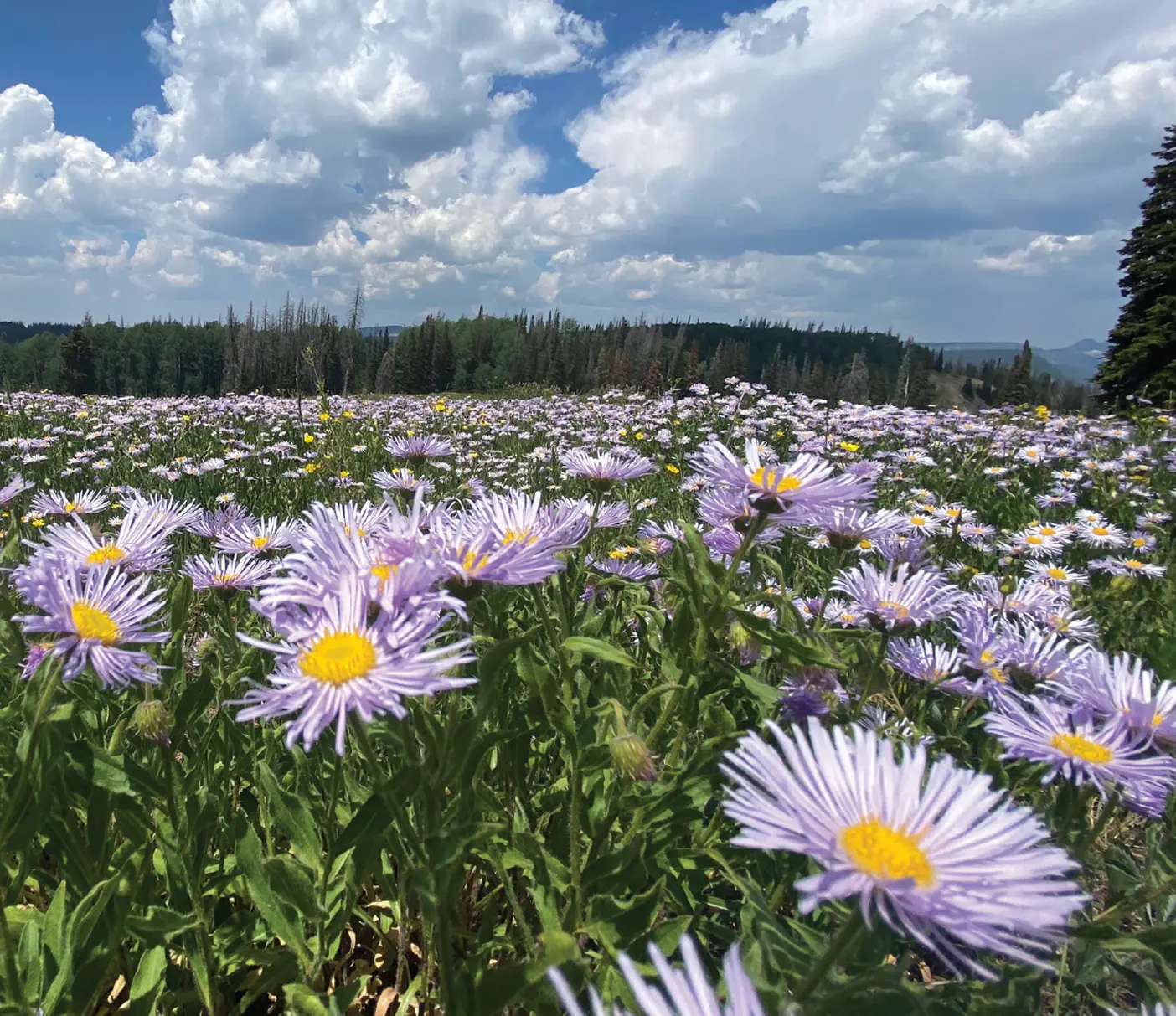
I sat in silence and took it in. I was still determined to quit, but I was in awe of the beauty that surrounded me, and I was dumbfounded that I had not noticed anything like this the previous day. I knew this couldn’t be the first beautiful sight that I had come across in almost 20 hours of riding in one of the most spectacular mountain ranges in the United States. Had I missed it all?
Regardless, I was determined to find a way home. But in order to quit, I had to ride the 10 miles to Silverton. Those 10 miles just happened to be amazing riding. I started to recognize the beautiful sights; the trail was fun and fast, and contrary to my previously poor attitude, I was now smiling and ignoring how sore and uncomfortable I was. I even laughed out loud as I rode the spectacular trails.
In Silverton I sat on the wooden boardwalk lining the dirt main street, eating a 2-pound burrito. I couldn’t stop thinking about the mountain meadow filled with flowers. I was overwhelmed by the beauty and how it made me feel.
I decided then, perhaps in a moment of weakness, that I would continue. I was not ready to quit. I was still worried about the lightning, and my legs were tired and heavy, but I vowed to pay attention and appreciate the full experience. I would not miss any more meadows of flowers.
The next five-plus days ended up being some of the most beautiful riding of my life—a fantastic experience. And I did not get struck by lightning.
That experience changed me, and it changed my views of that favorite verse from Nephi. I no longer held on to the idea that endurance was just grinding it out and surviving to the finish line. Endurance wasn’t a necessary evil that needed to be survived in order to get a prize. Instead my focus became the ride—the process.
Endurance is the process of learning and growing during a sustained effort; the process of seeing good in hard circumstances; a process that leads to refinement and growth. The process, not the product, including all of the positive and negative experiences, led me to the finish line with more joy.
Everyone is working through emotional, physical, and spiritual challenges and challenges in school, relationships, work, callings, and family. There will be rough terrain, blisters, and crashes, but there will also be a meadow of flowers. Will we see it? We must pay attention to and appreciate the flowers, and we must learn from the rough trail. The process, not the product, will allow us to find joy on our way to the finish.
Endurance Can Connect You to God
Trying to infuse these new insights into my life, I found myself in Banff, Alberta, Canada, toeing the start line for the 2018 Tour Divide. After years of preparation and a failed attempt in 2017, the time was finally here. Rain and cold weather were forecast for the first five days of the race. The mountains in early June were unpredictable, and I would be riding my bike through dense grizzly bear country. I was nervous about the many things I would not be able to control, but I was determined to pay attention to the ride and immerse myself in the experience.
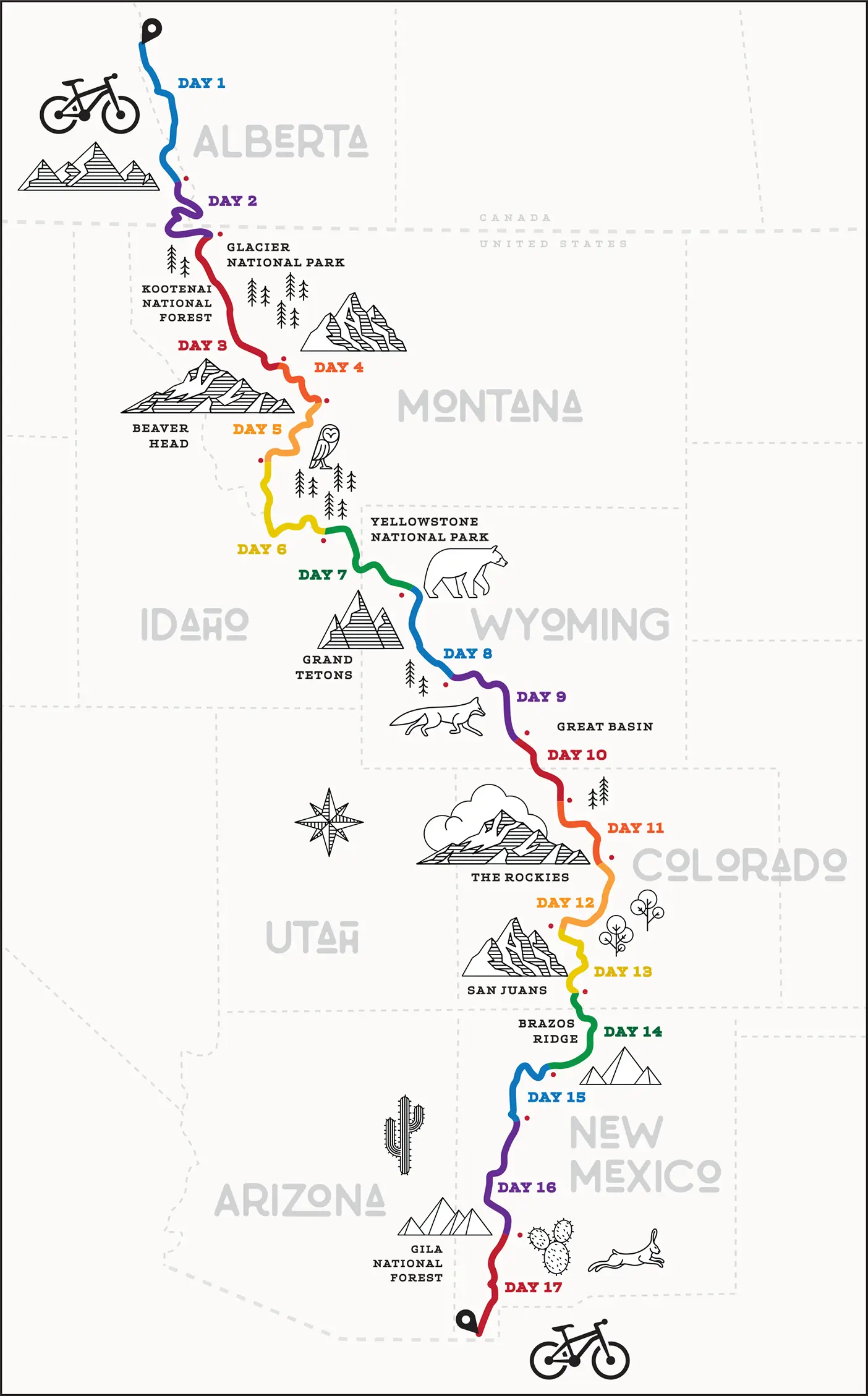
Once again, the ride and the experience were much, much harder than I anticipated. On average, I rode about 18 hours per day with about four hours of sleep. I slept wherever I could, including once in a forest service outhouse to separate myself from a menacing grizzly bear. The weather was extreme at times, with several instances when I bordered on hypothermia.
After just a few days my body was broken—I was constantly uncomfortable, knee and back issues were gradually getting more intense, gastrointestinal issues made keeping up with the 12,000-plus daily calories extremely difficult, and sores from contact points on the bike made sitting on the bike saddle almost impossible.
I was also suffering mentally. My confidence was waning, I regularly beat myself up for simple, inconsequential mistakes. My enthusiasm and pessimism seemed to ebb and flow with my ability to take in calories. I really missed my family. Every day I contemplated quitting.
It was under these conditions that I learned my next valuable lessons on endurance. Early on during the race, I realized that I would need help, but there was no other racer or spectator who was allowed to help me. I realized that I would have to get help from a higher source.
Every morning was brutal. After a few hours of sleep, I would drag myself onto my bike around
4 a.m. It was usually freezing cold and wet outside, and the darkness added an element of loneliness. The mornings felt hopeless. Every day I said to myself, “There’s no way I can do this again today.”
I finally decided that this was a good time to pray, out loud, while I rode. I found myself in hours of daily conversation with my Father in Heaven. With almost no pride left in me, my prayer sessions were sincere, brutally honest, and often raw with emotion.
I finally decided that this was a good time to pray, out loud, while I rode. I found myself in hours of daily conversation with my Father in Heaven. With almost no pride left in me, my prayer sessions were sincere, brutally honest, and often raw with emotion.
In an attempt to rid myself of my focus on the negative circumstances, I tried to think of everything for which I was grateful, sometimes talking about ridiculous things. During one of these early morning sessions, I found myself thanking my Heavenly Father for synthetic insulation that could get wet and still keep me warm, only to then get into a self-debate over natural down versus synthetic insulation.
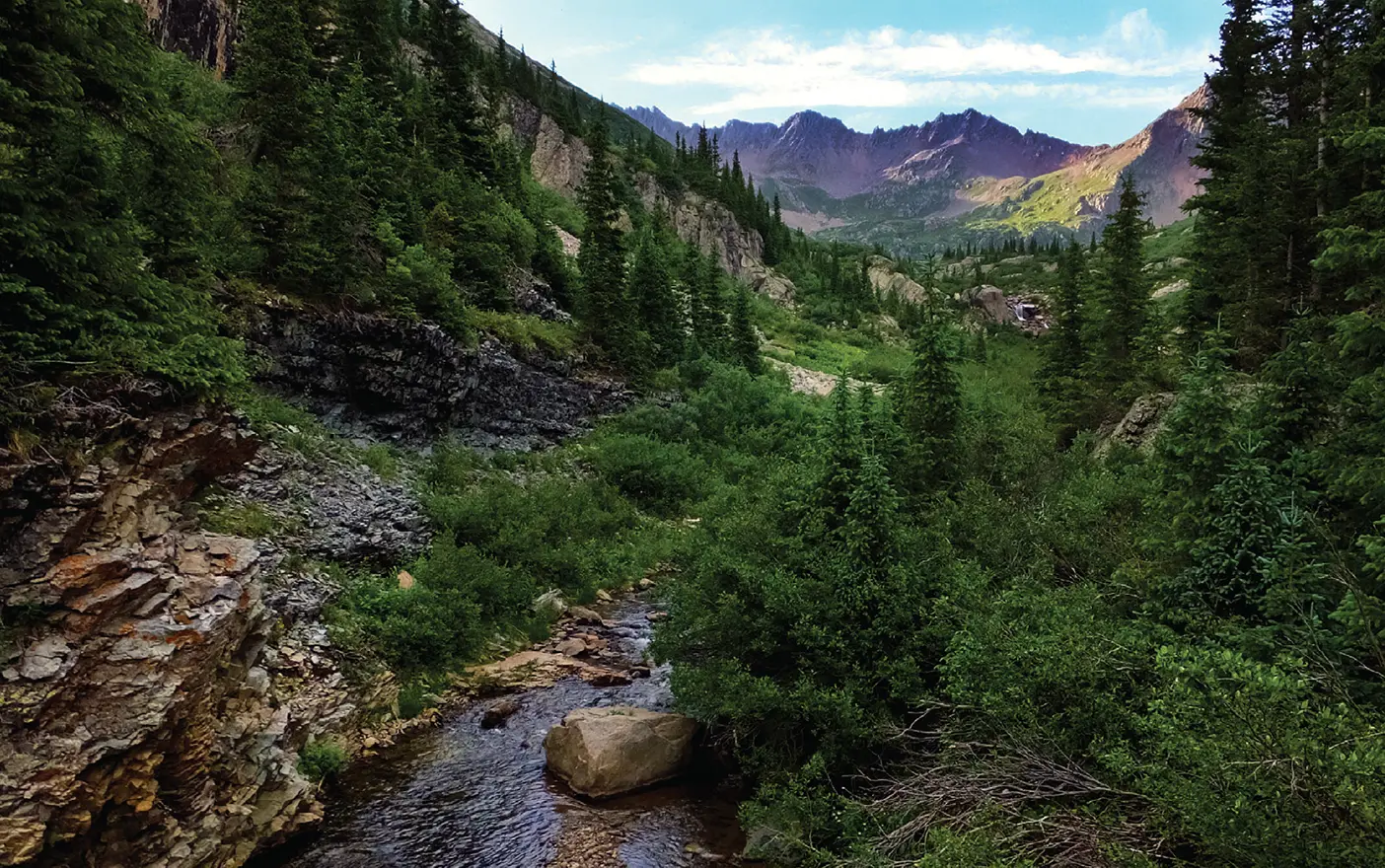
I had some amazing experiences, and I spent incredible hours praying for my family and making mental lists of the things I love about my amazing wife, Holly. I thought about the challenges each of my four daughters would face over the coming years and how I could help teach them the right things. I prayed for friends, making lists of people I wanted to reconnect with. I prayed for my students and wondered about ways I could help them find success in their lives.
I laughed and cried out loud during these sessions, and I felt like my Heavenly Father was laughing and crying right next to me. He was right there. I felt it. These mornings were unbelievably special. And each morning, wrapped up in my conversations with God, I would eventually ease into the saddle and climb up the next mountain.
We are given a gift with real power: an open line of communication with our Father. If we can humble ourselves enough—holding nothing back, bearing our soul to the person who already knows us—I promise that we can feel His presence and love in a real way. If we can be grateful and shift our thoughts away from ourselves, we will be blessed with additional strength that will bear us up. Prayer and gratitude are gifts that we must choose to accept and use. Please choose them.
There were also times every day when I would hit the proverbial “wall.” It was terrible to feel that I simply could not continue. I could not turn the pedal over one more time. When I felt like I was getting close to this wall, I was inspired to take out my phone while I rode and start voice recording the events—good, bad, and ugly—from the last 24 hours. I tried to record how I felt and what I was thinking. I wanted to remember all of it.
This process helped me in three ways: it helped me see and focus on the good in the day, it helped me to understand what I could learn from the tough circumstances, and it gave me confidence that I could overcome the challenges that were sure to come the next day or even the next hour.
I had to record these events in order to recognize them, understand them, and ultimately learn from them. I have not done a great job in my life of keeping a journal, but I recognized the power of recording my thoughts and feelings. Please consider what recording your thoughts could do for you, especially during hard times.
There were moments on the Tour Divide that left an incredibly deep and meaningful impression on me. I don’t think I would have been affected in such a deep way without the extreme circumstances and effort that prompted me to seek help and inspiration outside of myself.
I am willing to bet that every person in this room has been told at some point in your lives that “you can do hard things.” This is true! Our bodies, minds, and spirits were designed to do hard things. To this idea, I would like to add that we need hard things, or maybe even that we should want hard things. Intense effort and circumstances lead to extraordinary learning and growth.
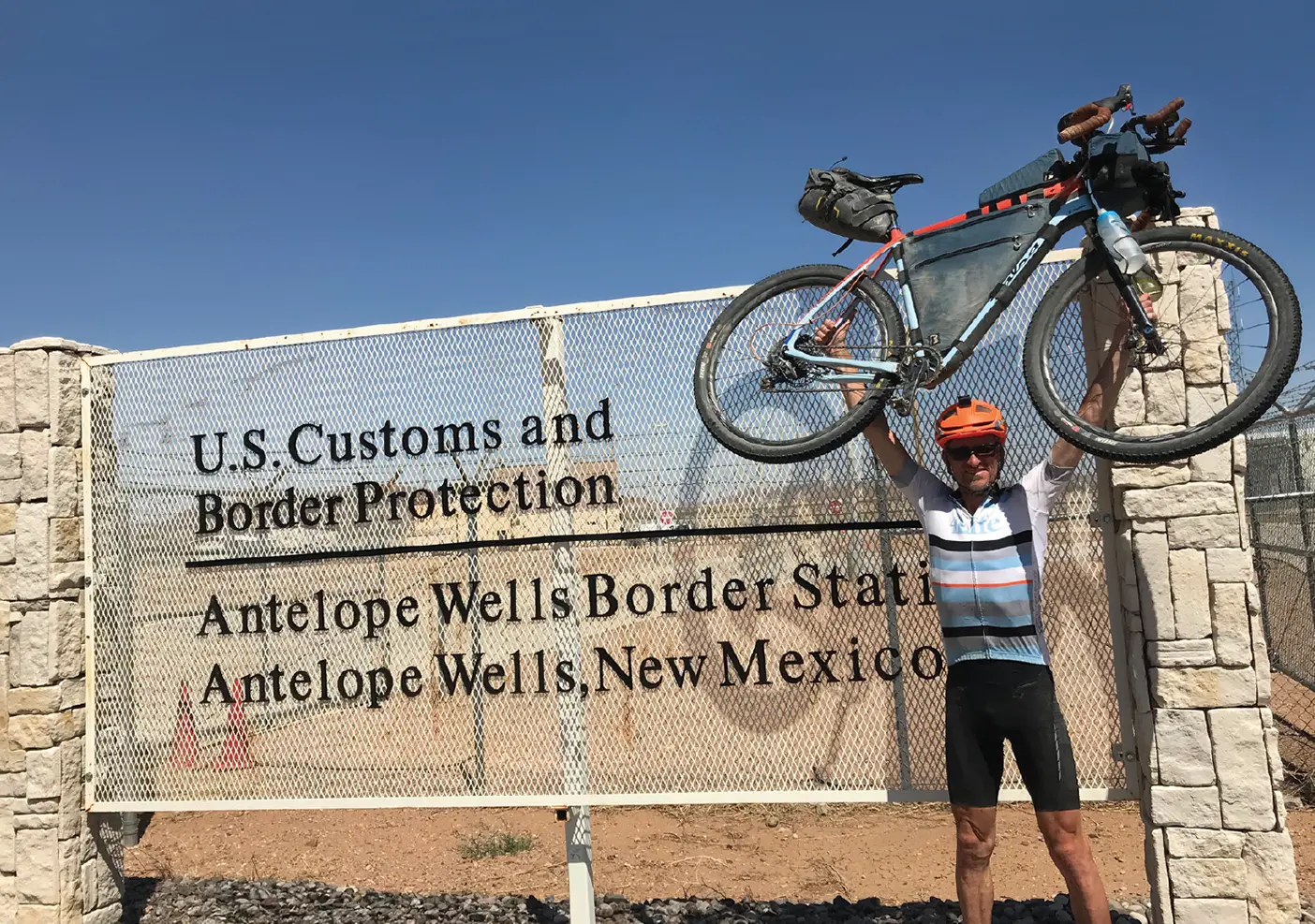
Elder Maxwell taught these principles in such a beautiful way:
Without patient and meek endurance we will learn less, see less, feel less, and hear less. We who are egocentric and impatient shut down so much of our receiving capacity.
. . . Enduring is one of the cardinal attributes; it simply cannot be developed without the laboratory time in this second estate. Even the best lectures about the theory of enduring are not enough. All the other cardinal virtues—love, patience, humility, mercy, purity, submissiveness, justice—they all require endurance for their full development.4
After 16 days I made it to the finish line of the Tour Divide. It was a lonely finish at the desolate border crossing of Antelope Wells, New Mexico, but I felt like I had accomplished something great. You might find this hard to believe, but I loved every minute of it! I didn’t realize it at that moment, but the lessons I learned over those days of racing and years of preparing were life changing.
Enduring Joy
Every accomplishment, every relationship, every experience requires endurance. Right now, most of you are enduring this semester and the next few years of school. Many of you have endured or are preparing to endure a full-time mission. We endure living the gospel, keeping covenants, fulfilling church callings, holding jobs, and maintaining relationships.
As we endure our many challenges, will we put our head down and focus on “the end,” or will we focus on the many experiences and learning opportunities that will happen along the way? Will we consider endurance as the process of grinding it out, or will we pay attention to the flowers, seeing endurance as an amazing process that leads to growth?
It turns out Nephi had it figured out. He certainly taught us to press forward and endure, but he also provided some incredible insight into the process: be steadfast in Christ (rely on Him and repent), have a perfect brightness of hope (see the good), love God and our neighbor (see beyond ourselves and be kind), and feast on the word of Christ (actively seek good things). That verse tells us what endurance is and how to endure well.
Endurance was intended to help us understand and realize the joy of learning and growing now, on earth. Our Father in Heaven wants us to find joy in the process. He gave us His Son so that we can do this. He wants us to be happy now.
As we consider Nephi’s teachings, consider the idea that the prize of eternal life in the celestial kingdom is a simple continuation of the process we learn on earth: endurance.
Endurance was never intended to be a painful, soul-crushing, grind-it-out process in which there is a big reward at the end that makes it all worth it. Please do not ever think that joy comes only at the end.
Endurance was intended to help us understand and realize the joy of learning and growing now, on earth. Our Father in Heaven wants us to find joy in the process. He gave us His Son so that we can do this. He wants us to be happy now.
Press forward. Endure well. Have joy. This is my prayer for each of us, in the name of Jesus Christ. Amen.
This text is condensed from a devotional address delivered Nov. 12, 2024, by J. Ty Hopkins, professor and chair of the BYU Department of Exercise Sciences. Go to speeches.byu.edu to find the full text, audio, and video.
NOTES
- Jon Billman, “The World’s Toughest Bike Race Is Not in France,” Outside, July 25, 2008, outsideonline.com/outdoor-adventure/biking/worlds-toughest-bike-race-not-france/.
- Dieter F. Uchtdorf, “Two Principles for Any Economy,” Ensign, November 2009.
- In Gordon B. Hinckley, “First Presidency Message: Taking the Gospel to Britain: A Declaration of Vision, Faith, Courage, and Truth,” Ensign, July 1987.
- Neal A. Maxwell, “Endure It Well,” Ensign, May 1990.


